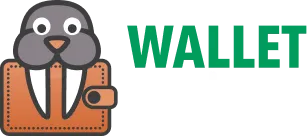
Understanding Personal Loans: A Balanced View
Personal loans can be a practical financial tool under the right circumstances. However, like any financial product, they come with both advantages and disadvantages. This article provides a balanced overview of the pros and cons of personal loans, helping you make an informed decision about whether they’re a good fit for your financial needs.
Pros of Personal Loans
Flexibility and Versatility: Personal loans can be used for a variety of purposes, from consolidating debt to financing a home renovation or covering unexpected expenses.
Fixed Interest Rates and Payments: Most personal loans come with fixed interest rates, which means consistent monthly payments throughout the loan term.
Potentially Lower Interest Rates than Credit Cards: For borrowers with good credit, personal loans can offer lower interest rates compared to credit cards.
No Collateral Required: Unsecured personal loans don’t require collateral, which means you don’t have to risk losing a personal asset if you default.
Credit Score Improvement: When managed properly (i.e., making timely payments), a personal loan can improve your credit score by diversifying your credit mix and establishing a history of creditworthiness.
Cons of Personal Loans
Interest and Fees: Personal loans typically come with interest charges and possibly other fees, such as origination fees or prepayment penalties.
Higher Interest Rates for Bad Credit: Borrowers with poor credit may face significantly higher interest rates, making the loan less affordable.
Potential for Debt Accumulation: Taking out a personal loan increases your debt burden, which can be a risk if your financial situation changes.
Rigid Payment Structure: Unlike credit cards, which offer flexible repayment, personal loans have a fixed repayment schedule that must be adhered to.
No Tax Benefits: Unlike some other types of loans (like student loans or mortgages), personal loan interest is not tax-deductible.
Evaluating Your Financial Situation
Before deciding on a personal loan, assess your financial situation. Consider factors like your current debt, credit score, income stability, and your ability to make regular payments.
Shopping for the Best Loan
If you decide a personal loan is right for you, shop around for the best terms. Compare interest rates, fees, loan terms, and repayment options across multiple lenders to find the most suitable deal.
Using Personal Loans Wisely
If used wisely, personal loans can be a valuable tool in managing your finances. Use them for necessary expenses or to consolidate high-interest debt, and avoid using them for unnecessary purchases.
Informed Borrowing is Key
Personal loans can offer financial relief and help achieve specific goals when used responsibly. By understanding the pros and cons, you can make an informed decision about whether a personal loan is suitable for your financial situation. Remember, informed borrowing is the cornerstone of sound financial management.

